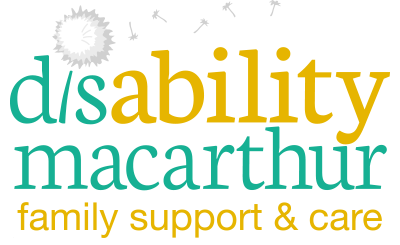NSW Police Force has launched the 2014 Missing Persons Week campaign to raise awareness of the issues and impacts surrounding missing persons.
In 2014, the National Missing Persons Coordination Centre has partnered with Alzheimer’s Australia for the theme Dementia and Missing Persons… Learn how to prevent these words appearing in the same sentence.
Operational Communications & Information Commander, Assistant Commissioner Peter Barrie, and CEO of Alzheimer’s Australia NSW, John Watkins, officially launched the week-long campaign today, August 3 at NSW Police Headquarters.
Assistant Commissioner Barrie said uncertainty about the whereabouts and safety of a loved one can be a traumatic experience.
“No one can estimate the impact on loved ones when someone goes missing – and it extends beyond the family to friends, colleagues and even the community,” Assistant Commissioner Barrie said.
“In 2013, almost 12,000 people were reported missing in NSW, and while most of them were located in a short period of time, 36 still remain missing.
“That’s the purpose of Missing Persons Week – to recognise missing people who are found, remember those who are still lost and gather information to help bring them home.
“This week, through our partnership with Alzheimer’s Australia NSW, we will also highlight dementia as one of the key ‘at risk’ groups in our community of going missing.
“As one of the main symptoms of dementia is memory loss, it is easy for a person to become disorientated or forget their way home.
“While programs like Safely Hom are helping reduce the time it takes to locate a missing person suffering from dementia, we hope by raising awareness during Missing Persons Week, we can register more people and stop them from going missing,” Assistant Commissioner Barrie said.
Mr Watkins said this was an issue that was only going to become more prevalent as the number of people with dementia continues to increase.
“Dementia is an umbrella term for a range of diseases, of which Alzheimer’s disease is the most common, that describes the loss of memory, intellect, rational thought, social skills and physical functioning,” Mr Watkins said.
“Dementia can also impact on a person’s ability to remain orientated to their surroundings and can mean people with dementia, when, for instance, they are out for a walk, can get disorientated and not able to find their way home.
“This can be extremely distressing and traumatic for both the person with dementia and for their loved ones.
“That’s why we’re very pleased to have an ongoing partnership with the NSW Police Missing Person’s Unit with the Safely Home program, which aims to help locate people with dementia if they become lost.
“We’d like to thank the NSW Police for highlighting this distressing issue and look forward to continuing to work with them to help people with dementia to live as full, as independent and as safe a life as possible.”
In NSW, there are almost 112,000 people with dementia, which is expected to grow to 132,000 people by 2020.
Police and Emergency Services Minister, Stuart Ayres, said National Missing Persons Week is an opportunity to raise awareness of the issues associated with missing persons.
“To have a loved one go missing has an absolutely devastating impact on the person’s family and friends. Police do an outstanding job in providing support for the families affected – quite often over many years,” Mr Ayres said.
A missing person is defined as anyone who is reported missing to the police, whose whereabouts is unknown and there are fears for the safety or welfare of that person.
Missing Persons Statistics:
In 2013, 11,803 people were reported missing in NSW and 36 people remain missing.
* An average of 227 missing person reports are made each week
* An average of 32 missing person reports are made each day
* 60% are under 18 years old
* 10% are over 60 years old
11,797 missing people were located in 2013 (some were reported missing in previous years).
There are currently 684 long-term Missing Persons (missing for more than 12 months), however, 431 of those cases have been finalised at Coroners Court.
So far in 2014, 5635 people have been reported missing to NSW Police. Of those, 30 have been missing for more than three months.
NSW Police Force investigated 120 reports of missing people suffering from dementia in 2013. Many more incidents are not reported to police and are located by family or care facilities within a few hours of going missing.
One person suffering dementia and reported missing in 2013 has still not been located.
On average, a person suffering dementia will be missing for up to a day before they are located.
Missing Person Facts:
On average, 35,000 people are reported missing in Australia every year – equivalent to one person every 15 minutes.
There are three groups most at risk of going missing; those living with a mental illness, young people, and older people with dementia or memory loss.
99.5 per cent of missing persons are located; however, there are about 1600 long-term missing persons in Australia (missing for more than six months).
Approximately one third of missing persons go missing more than once – this is particularly the case with young people and for those people with dementia.
It is estimated that for every missing person reported, at least 12 others are affected whether it is emotionally, psychologically, physically or financially.
Myths and facts:
Myth: You need to wait 24 hours before reporting a person missing.
Fact: You do not have to wait 24 hours to report someone as missing. If you have serious concerns for the safety and welfare of a person, and their whereabouts are unknown, then you may immediately report them missing to your local police. Police will take a report where there are concerns for safety and welfare and their whereabouts are unknown.
Myth: Adults cannot be reported as missing.
Fact: In Australia, anyone can be reported as missing if their disappearance is out of character and there are concerns for their safety and welfare.
Myth: People ‘choose’ to go missing.
Fact: Circumstances can limit people’s choices and make them more vulnerable to leaving their usual environment and go missing. There are a number of triggers such as mental illness, economic and/or social problems.
Myth: When children are missing they are likely to have been abducted.
Fact: Most children that are reported missing are located safe and well within 24 hours. Common reasons for children going missing include a breakdown in communication and disciplinary issues.
Myth: Details about missing persons are not confidential.
Fact: All details about missing persons are kept confidential and are not made available to the public unless permission has been granted by the family and investigating officers.
Myth: If someone has been reported missing and they are then located, you cannot report them if they go missing again.
Fact: Each time a person goes missing, even if they have gone missing before, it is treated as an individual report.
Myth: When a missing person is located their address will be provided to the person who reported them missing.
Fact: When located, a missing person must give permission before their whereabouts are released. A decision to release a missing child’s details will be determined by the circumstances surrounding the reasons the child went missing.
Dementia Facts from Alzheimer’s Australia:
Dementia is the term used to describe the symptoms of a large group of illnesses which cause a progressive decline in a person’s functioning.
It is a broad term used to describe a loss of memory, intellect, rationality, social skills and physical functioning.
There are many types of dementia including Alzheimer’s disease (which is the most common form of dementia), vascular dementia, fronto temporal dementia and dementia with Lewy Bodies.
Dementia can happen to anybody, but it is more common after the age of 65.
There are more than 332,000 Australians living with dementia
That number is expected to increase by almost one third to 400,0001 in less than 10 years.
Without a major medical breakthrough, this is expected to soar to almost 900,000 by 20501
In NSW, there are almost 112,000 people living with dementia, which is expected to grow to 132,000 people by 20201
Three in 10 people over the age of 85 and almost one in ten people over 65 have dementia1
An estimated 1.2 million Australians are caring for someone with dementia
There are approximately 24,7001 people in Australia with Younger Onset Dementia (a diagnosis of dementia under the age of 65).



